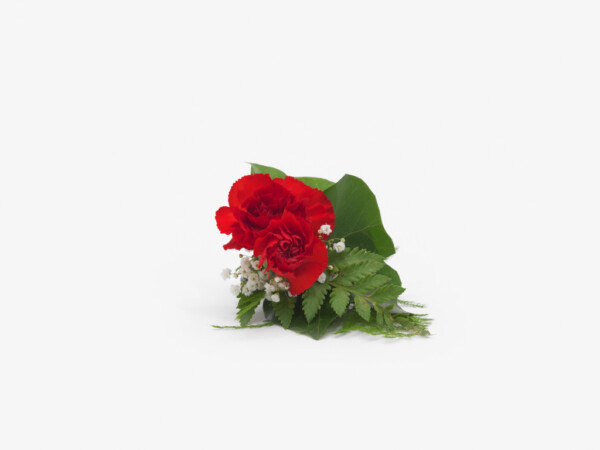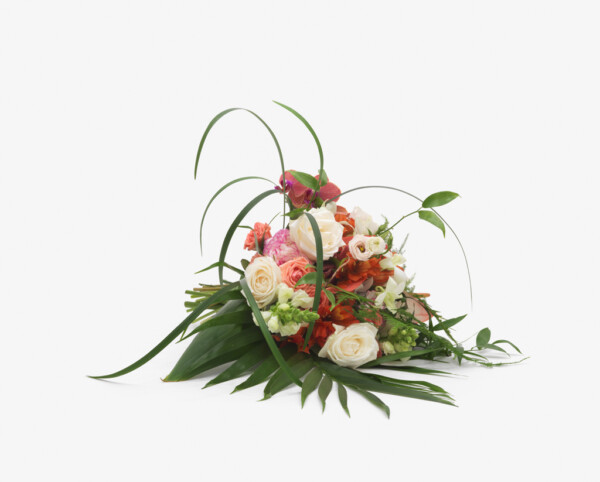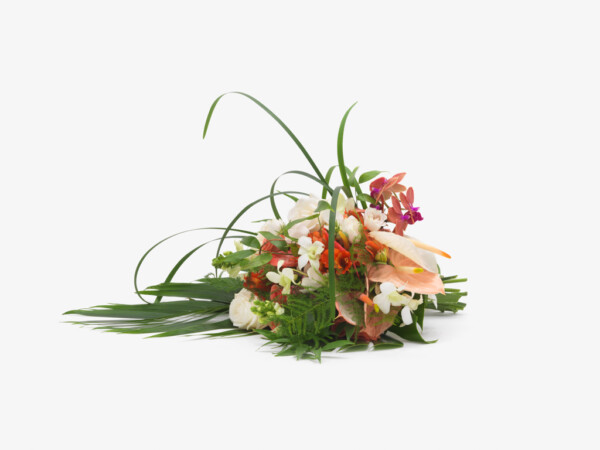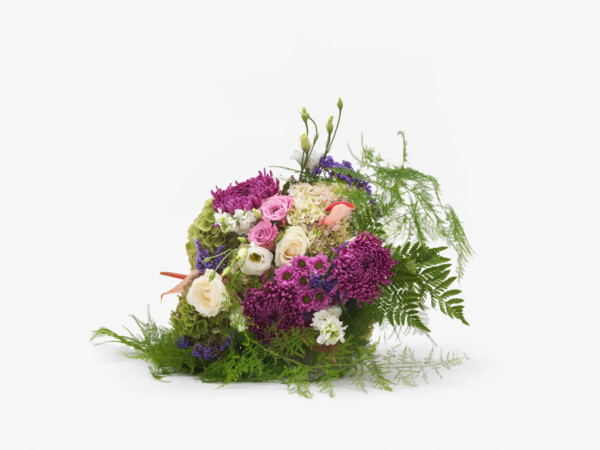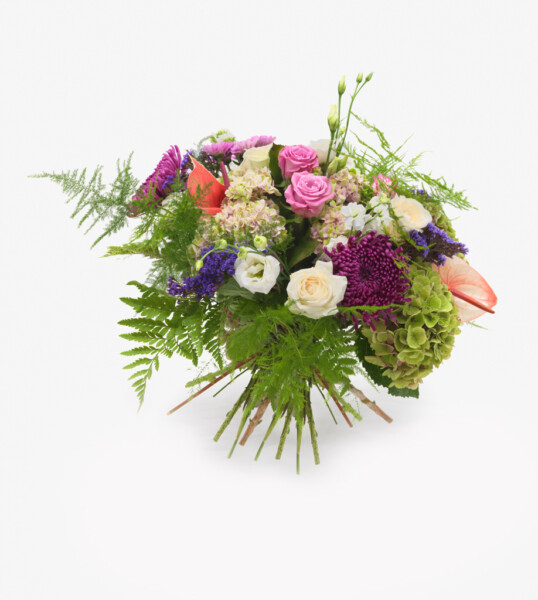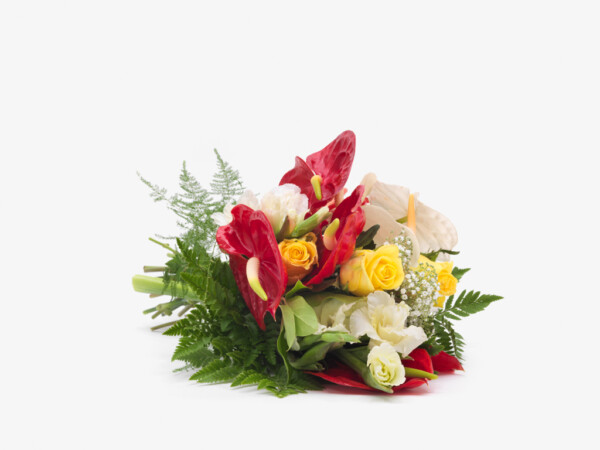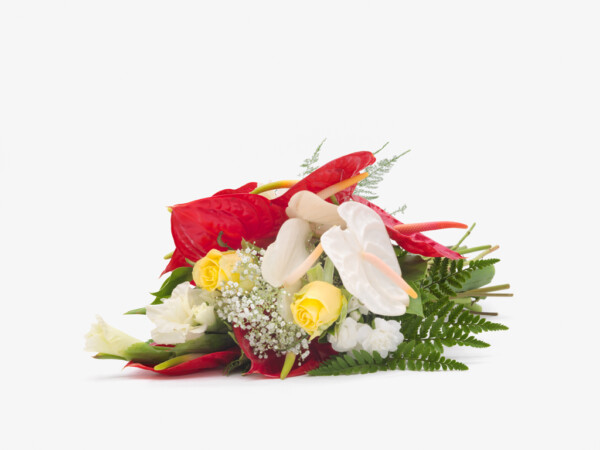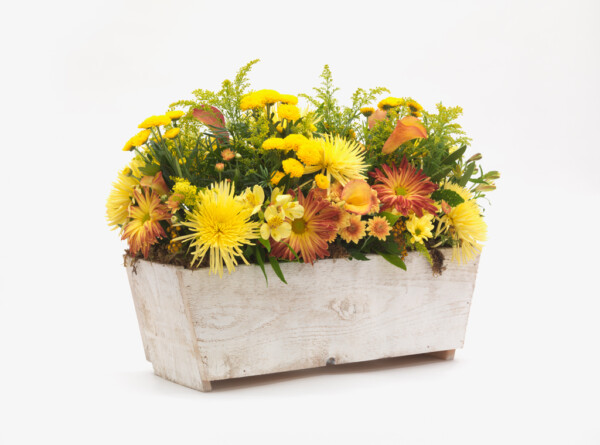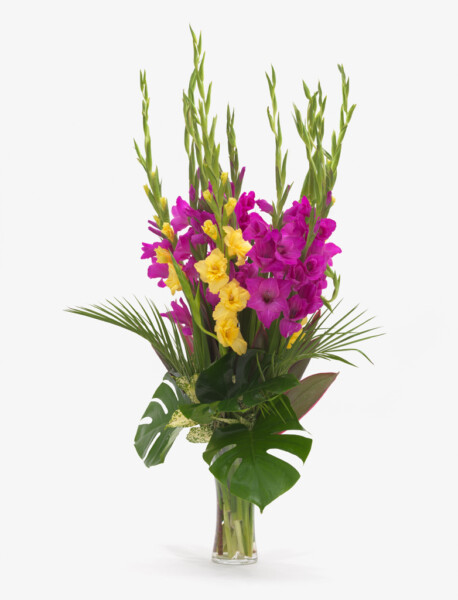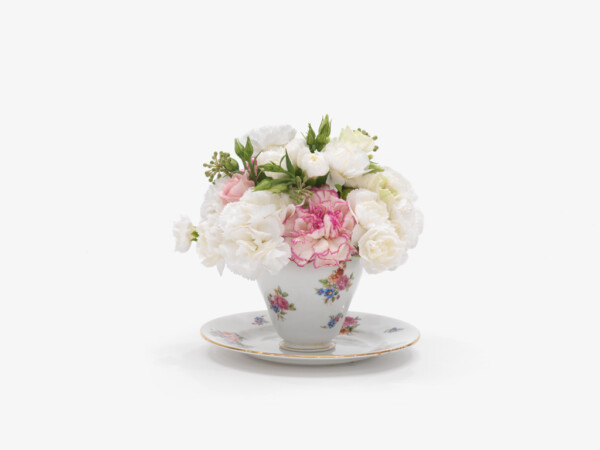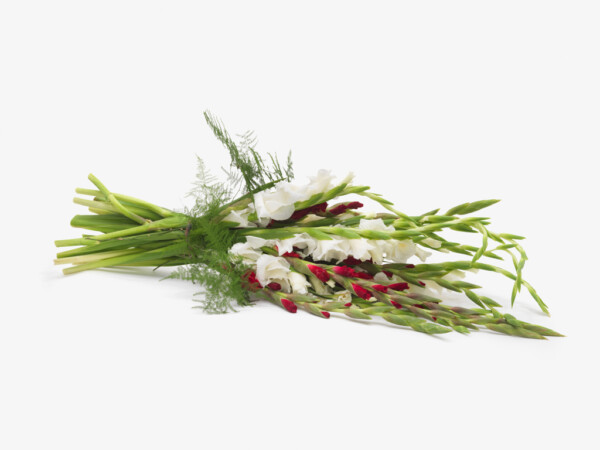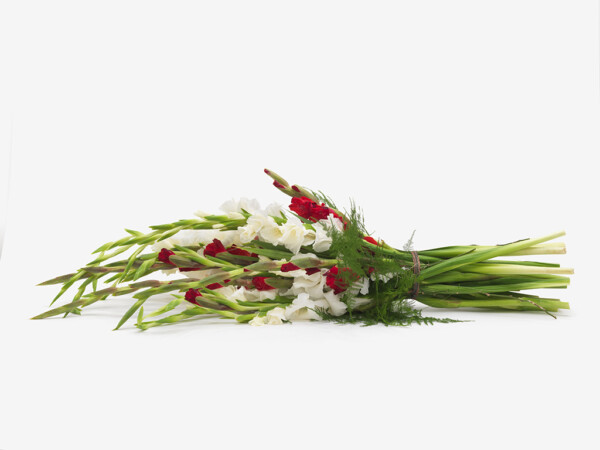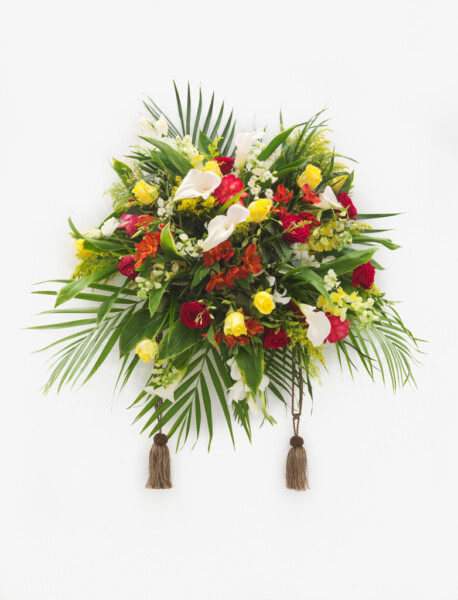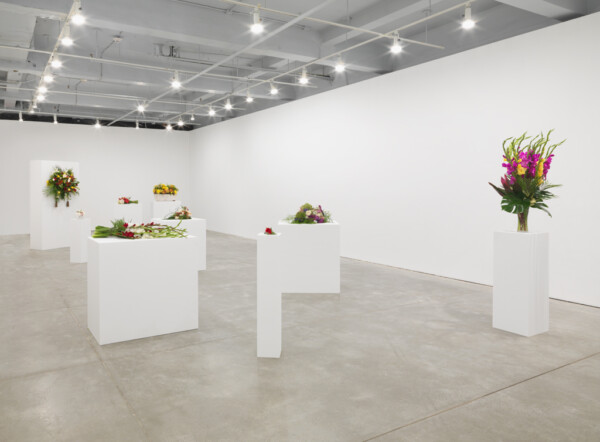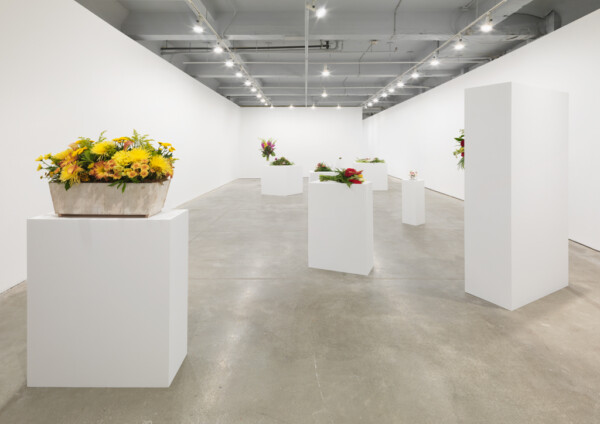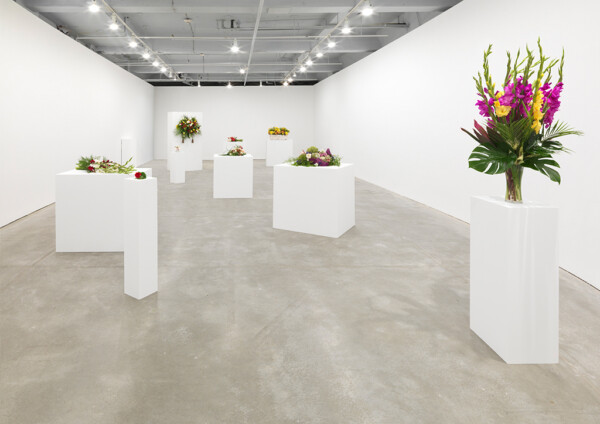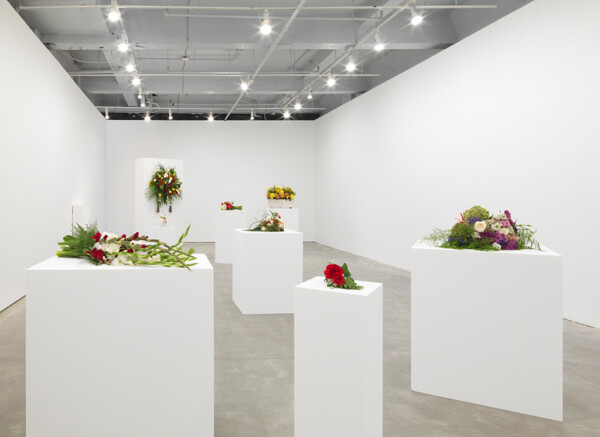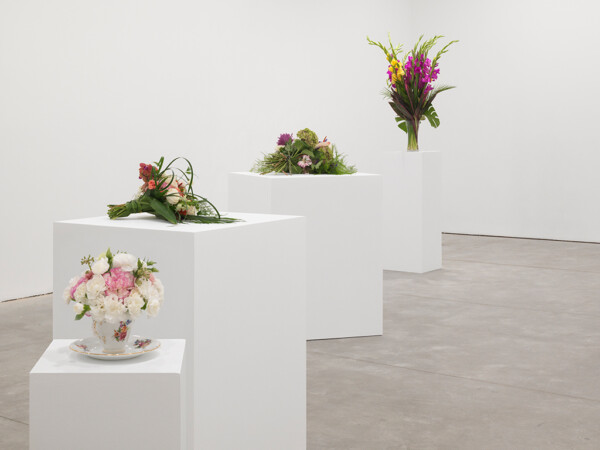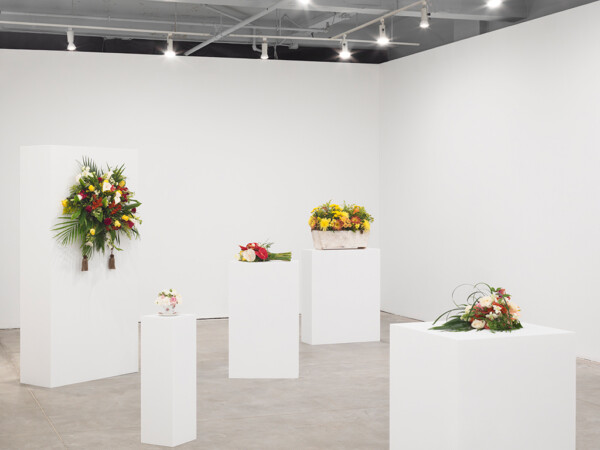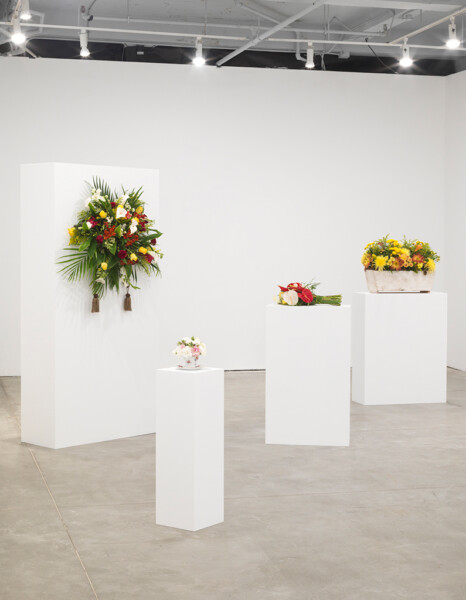- Flowers for Africa –Kapwani Kiwanga
- Flowers for Africa –Kapwani Kiwanga
- Flowers for Africa –Kapwani Kiwanga
- Flowers for Africa –Kapwani Kiwanga
Flowers for Africa
Kapwani Kiwanga
9 September–
14 October 2017
Curated by: Kathleen Ritter (Guest Curator), Jonathan Middleton/Denise Ryner (Director Curator)


Kapwani Kiwanga, Flowers for Africa : Tunisia, 2014. Courtesy of the artist and Galerie Jérôme Poggi, Paris. Photo : Aurélien Mole. Collection of FRAC Ile-de-France, Paris (FR).
Flowers for Africa
Kapwani Kiwanga
Curated by: Kathleen Ritter (Guest Curator), Jonathan Middleton/Denise Ryner (Director Curator)
Tunis, Tunisia, March 1956. The leader of the Neo Destour Party, Habib Bourguiba, on his return from Paris after signing the Franco-Tunisian Common Protocol, addresses a crowded stadium celebrating Tunisia’s independence. As he speaks into the microphone, his lapel is decorated by a simple boutonnière, an adornment signaling this as a special occasion. This image is captured on screen from grainy black-and-white footage sourced in the British Pathé newsreel “Tunisia Receives Her Independence”.
Through extensive research into archives related to decolonization, artist Kapwani Kiwanga locates images such as these representing defining moments of independence in countries throughout the African continent. Each image features, to a greater or lesser extent, a floral arrangement—perhaps the only common element to be sourced across a range of ceremonial occasions recognizing the decolonization of Africa. These arrangements range from a boutonnière to an elaborate bouquet.
Kiwanga then takes these images to a local florist in order to recreate the bouquets as closely as possible to the archival images. The fresh arrangements are displayed in a gallery and left to wilt over the duration of the exhibition, just as the memory of a celebratory moment might fade over time. Titled Flowers for Africa, Kiwanga’s series is a conceptual project that questions the material from which history is pictured and remembered. These artworks exist in the form of a protocol; they are recreated for each exhibition according to a set of detailed instructions, with differing results based on the interpretation by the florist.
This exhibition at the Or Gallery is the first exhibition of Kiwanga’s work in Vancouver, and the first solo exhibition that recreates all of the existing works in her Flowers for Africa series, for which there are nine to date. The series is ongoing as Kiwanga continues to source images of all 54 states across the continent. The exhibition is organized by artist and writer, Kathleen Ritter, and accompanied by a conversation between Ritter and Kiwanga on the use of archival research in contemporary cultural production. A publication will be produced after the exhibition.
Working with sound, film, performance, installation, and objects, Kapwani Kiwanga relies on extensive research to transform raw information into investigations of historical narratives and their impact on political, social, and community formation. Her work focuses on untold histories and structures of power, examining how certain events in popular and folk narratives take shape in objects and oral histories. Trained as an anthropologist, Kiwanga performs this role in her artistic practice, using historical information to construct narratives that complexify our understanding of human experiences. Kiwanga is not only invested in the past but also the future, telling Afrofuturist stories and creating speculative dossiers from future civilizations to reflect on the impact of historical events.
Exhibition Text & Map (99.45 KB)
Opening:
Friday, September 8, 2017
8PM
Organized by Kathleen Ritter
Conversation Saturday, September 9, 2017 at 2PM
Artist Bio
Kapwani Kiwanga
Kiwanga was born in 1978 in Hamilton, Canada and lives in Paris, France. She graduated from McGill University, Canada with a degree in Anthropology and Comparative Religions. She has been artist-in-residence at L’Ecole National Supérieure des Beaux-arts, Paris; Le Fresnoy: National Contemporary Art Studio (France); MU Foundation, Eindhoven (Netherlands); and Le Manège, Dakar, Senegal. She has exhibited her works internationally, and her film and video works have been nominated for two BAFTAs and have received awards at international film festivals.




